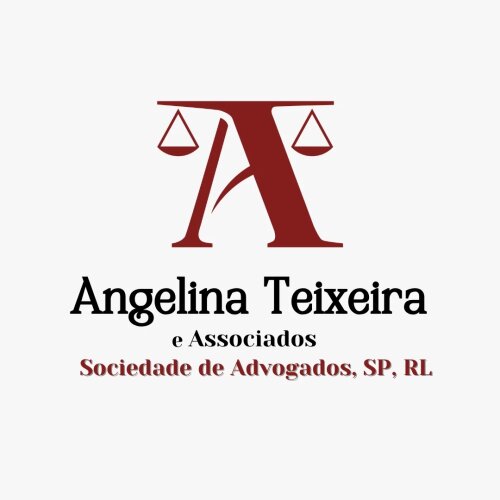Best Oil, Gas & Energy Lawyers in Porto
Share your needs with us, get contacted by law firms.
Free. Takes 2 min.
List of the best lawyers in Porto, Portugal
About Oil, Gas & Energy Law in Porto, Portugal
Porto, Portugal’s second-largest city, is a dynamic hub for commerce and industry, playing a significant role in the country’s energy landscape. The oil, gas, and energy sectors in Porto encompass exploration, production, distribution, consumption, and transition to renewable energy sources. The legal framework governing these sectors is designed to ensure responsible exploitation of resources, encourage investment, safeguard the environment, and support the country's commitment to sustainable energy development. As Portugal intensifies efforts to transition toward renewable energy, regulations continue to evolve, impacting both traditional fossil fuels and newer energy markets.
Why You May Need a Lawyer
Legal issues in the oil, gas, and energy sector can be complex and often involve high-value projects, strict regulatory oversight, and evolving environmental mandates. You may require a lawyer if you are:
- Starting an energy project or investment in Porto
- Negotiating contracts for exploration, extraction, or supply of oil and gas
- Seeking compliance with local, national, or EU environmental regulations
- Ensuring legal due diligence in mergers, acquisitions, or joint ventures
- Dealing with regulatory bodies, permits, and licensing
- Resolving disputes related to property, royalties, taxation, or compensation
- Adopting or transitioning to renewable energy sources
- Protecting intellectual property in energy technologies
- Managing liabilities connected with environmental damage or accidents
Consulting a specialized lawyer can help you navigate these challenges, protect your interests, and streamline your operations in compliance with the law.
Local Laws Overview
Oil, gas, and energy activities in Porto are governed by a combination of Portuguese national law, European Union directives, and international agreements. Key aspects include:
- Licensing and Permits: All exploration and production activities require governmental approval, often following competitive bidding and environmental assessment procedures.
- Environmental Compliance: Strict regulations require operators to conduct environmental impact studies and implement measures to minimize harm.
- Market Regulation: The Portuguese Energy Services Regulatory Authority (ERSE) oversees electricity and natural gas markets, ensuring transparency, competition, and fair pricing.
- Health and Safety: Companies must adhere to rigorous health and safety protocols to protect workers and the local population.
- Taxation and Royalties: Specific taxes and royalties apply to oil and gas extraction and energy production, influenced by both local and EU legislation.
- Renewable Energy Incentives: Legislation supports the development of wind, solar, and other renewable sources with incentives and feed-in tariffs.
- Dispute Resolution: Specialized procedures exist for resolving disputes related to energy contracts and regulations.
A lawyer with expertise in Portuguese energy law can provide tailored guidance to help you comply with all relevant regulations.
Frequently Asked Questions
What is the role of ERSE in the energy sector?
ERSE, the Portuguese Energy Services Regulatory Authority, regulates and supervises the electricity and natural gas sectors, ensuring fair competition and consumer protection.
Do I need a license to start an oil or gas operation in Porto?
Yes, all oil and gas exploration, production, and related activities require proper licensing from the national government, following specific regulatory and environmental criteria.
What are the environmental requirements for energy projects?
Projects must undergo comprehensive environmental impact assessments and comply with ongoing regulations designed to minimize pollution and environmental degradation.
How are disputes in the energy sector typically resolved?
Disputes may be resolved through negotiations, arbitration, or court proceedings, depending on the specific terms of the contract and applicable laws.
Are there incentives for renewable energy investments?
Yes, Portugal offers incentives, including feed-in tariffs, tax benefits, and grants to promote investments in solar, wind, and other renewable energy projects.
What taxes apply to oil, gas, and energy companies?
Energy companies are subject to corporate taxes, specific energy sector levies, and may pay royalties on extracted resources. The rates and requirements depend on the activity and location.
Can foreign investors participate in Porto’s energy sector?
Foreign investment is encouraged and regulated, but subject to compliance with licensing, environmental, and ownership rules under Portuguese and EU law.
How can I protect my energy-related intellectual property in Portugal?
Portugal adheres to European and international intellectual property laws. Legal counsel can assist with patents, trademarks, and enforcement strategies to protect innovations.
What permits are needed for energy infrastructure development?
Depending on the project, permits may cover land use, construction, environmental compliance, grid connection, and operational safety. Local and national authorities oversee approvals.
Who monitors health and safety in energy operations?
Workplace health and safety are regulated by the Authority for Working Conditions (ACT), alongside specific requirements set by energy regulators and environmental agencies.
Additional Resources
If you need more information or assistance, consider reaching out to:
- Portuguese Energy Services Regulatory Authority (ERSE)
- Directorate-General for Energy and Geology (DGEG)
- Portuguese Environment Agency (APA)
- Porto Chamber of Commerce and Industry
- Portuguese Bar Association (Ordem dos Advogados) for finding specialized lawyers
- European Union Energy Directorate-General for updates on EU regulations and directives
Next Steps
If you require legal assistance in the oil, gas, or energy sector in Porto, start by:
- Clarifying your specific legal needs related to your project or issue
- Gathering all relevant documents and information about your operations
- Contacting a lawyer with experience in Portuguese oil, gas, and energy law
- Preparing questions to discuss legal strategy, compliance, and any ongoing concerns
- Staying informed about changes in local and EU energy laws and incentives
Navigating the oil, gas, and energy legal environment in Porto can be complex, but with the right legal support, you can address challenges effectively and take advantage of the opportunities available in this evolving sector.
Lawzana helps you find the best lawyers and law firms in Porto through a curated and pre-screened list of qualified legal professionals. Our platform offers rankings and detailed profiles of attorneys and law firms, allowing you to compare based on practice areas, including Oil, Gas & Energy, experience, and client feedback.
Each profile includes a description of the firm's areas of practice, client reviews, team members and partners, year of establishment, spoken languages, office locations, contact information, social media presence, and any published articles or resources. Most firms on our platform speak English and are experienced in both local and international legal matters.
Get a quote from top-rated law firms in Porto, Portugal — quickly, securely, and without unnecessary hassle.
Disclaimer:
The information provided on this page is for general informational purposes only and does not constitute legal advice. While we strive to ensure the accuracy and relevance of the content, legal information may change over time, and interpretations of the law can vary. You should always consult with a qualified legal professional for advice specific to your situation.
We disclaim all liability for actions taken or not taken based on the content of this page. If you believe any information is incorrect or outdated, please contact us, and we will review and update it where appropriate.














